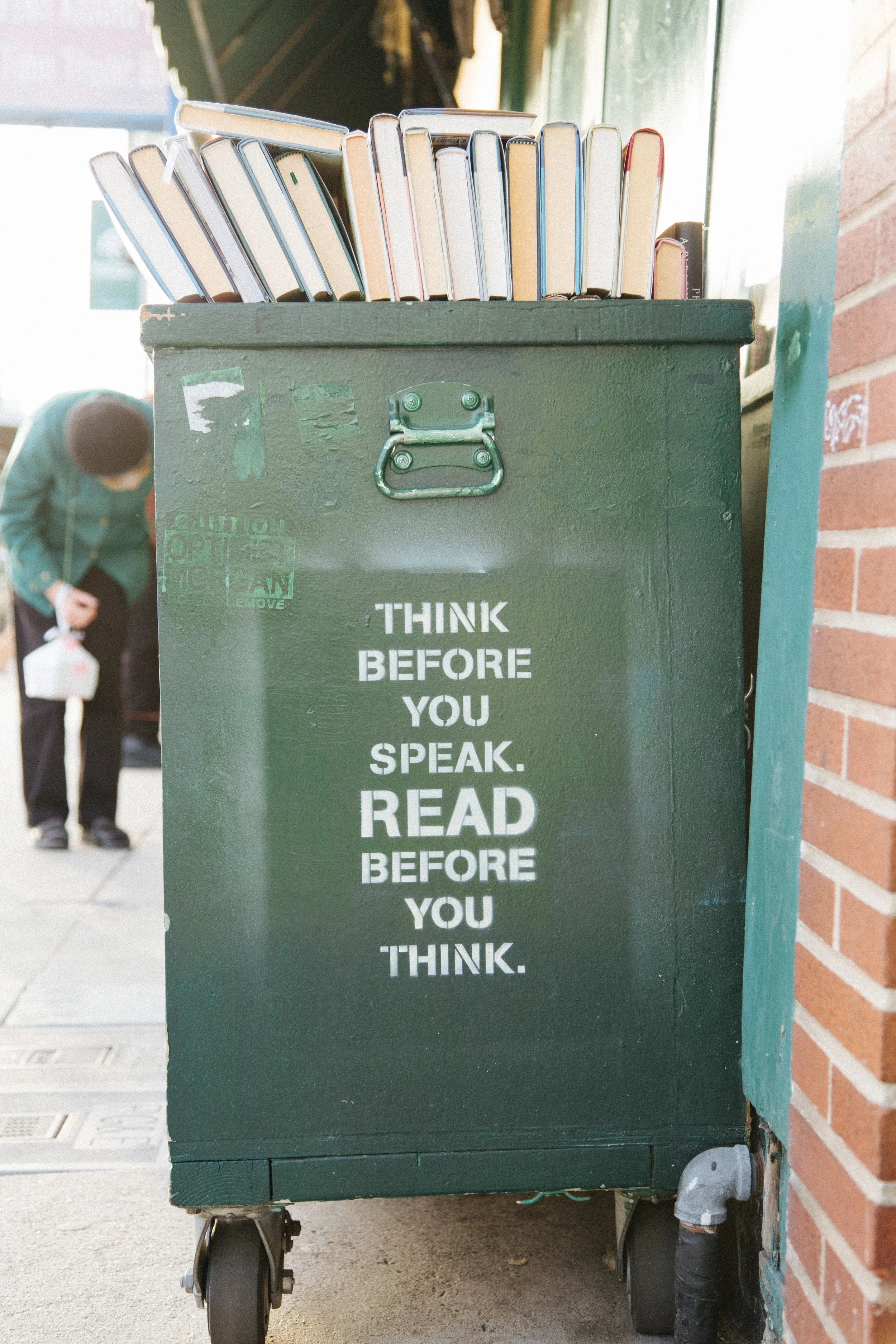Why Reading Books That Make You Uncomfortable Makes You a Better Reader (And Person): Part 3
I took a quick break from the "Uncomfortable" series to honor the recently deceased Harper Lee, and now I'm back with the final installment. This is Part 3 of a three-part series exploring the value of reading books that make us uncomfortable and how we can grow from those reading experiences. The series can be read in any order, and you can find Part 1 and Part 2 here.
I used to think there were two kinds of readers: someone who reads purely for fun, and someone who reads because some authority figure was forcing them to learn something they may or may not have wanted to know. Like required reading. But as I've gotten older I'm realizing there's another kind of reader---someone who reads because they recognize their ignorance on a topic and learning about that topic can enrich their lives.
Everyone who reads has probably been each of these kinds of readers at different points. I oscillate between all three, and sometimes I even do all three at once depending on how many books I'm simultaneously reading. But lately I'm finding myself more often in the third category.
Being a person who reads a lot, I learn new things all the time. I eat knowledge for breakfast and facts for snacks. But I'm finding that the more I learn, the less I know. The world becomes more vast and complex with every book I read, and I find that there are experiences about which I know nothing and will never fully know. This is where the uncomfortable part comes in.
I used to shirk books about feminism because I thought, as a woman, I probably know just about all there is to know just from personal experience. Wrong. Roxane Gay proved this to me in a big way.
I read her book Bad Feminist and she showed me how intersectionality played into feminism. Intersectionality is the study of how multiple identities intersect and how oppression manifests for those identities. For example, the experience of a white feminist is different from that of a black feminist because a black feminist must also contend with racism. The experience of a black, transgender feminist is different still. And that doesn't even account for things like class, education, disability, ethnicity, religion and other marginalized identities.
Yes, Bad Feminist made me uncomfortable. But that's the point! You're supposed to be unsettled when she talks about being the only black person in her department at the university where she teaches. You're supposed to be uneasy when she talks about the double standards of the justice system. You're supposed to be horrified when she talks about being gang raped in the woods as a middle schooler. If you're not uncomfortable, have someone check your pulse.
Similarly, I read Ta-Nehisi Coates' book Between the World and Me a few months ago and I'd be lying if I said I wasn't uncomfortable the entire time. Literally. Turn to the news on any given day and you'll likely hear about a black person, usually male, killed for doing something innocuous, like driving, playing in the front yard, or shopping in Wal-mart. But Between the World and Me delved into the psychology---because behind every news story, there's a young black man being treated like he's a problem before he's ever treated like a human, there's a young black man who fears for his life as he's going about his everyday tasks, and there's a young black man who worries he won't have the luxury to die of old age because someone will take his life from him.
Yes, Between the World and Me made me uncomfortable. Sometimes on the fidgeting level and sometimes on the "I need to put this down for a few hours so I can breathe and process" level. But I would be more concerned if I read these books and didn't feel uncomfortable. I imagine the kind of person who wouldn't be uncomfortable when reading about the prejudices and aggressions Roxane and Ta-Nehisi and a million others have experienced, and it scares me. I fear that the person who wouldn't be bothered by all they've endured would be the very person making them endure.
If we're not uncomfortable when we learn about injustice, we probably don't feel called to do anything about it. If we're not uncomfortable, it's really easy to look the other way and pretend not to see how society forces people to suffer simply for being who they are and inhabiting the skin they were born in.
Racism, sexism, classism, ableism... These are things I don't ever want to feel comfortable with. Ignorance is bliss only to those who hold the power.
That's why it's important to read these kinds of books. The first step to fixing anything is acknowledging that a problem exists. And depending on who you are---the intersection of your identities---the problem may be better or worse for you.
Personally, I have a lot of privileges. I'm white, middle class, don't suffer from any mental or physical disabilities, and am in a heterosexual relationship. So it's especially important for me to read books about the experiences of people with different identities than me so I can understand what navigating the world looks like for them. It's the people who don't do that---people who are unable to empathize and see past their own experiences---that see black skin and think criminal, see women's bodies and think object, see LGBT couples and think abomination.
This, too, is a journey. As fantastic as Bad Feminist and Between the World and Me are, books to make you examine your prejudices are multitudinous. I venture to say it'd be impossible to read them all, but I want to at least be open to the experience of reading the ones I can. I hope you'll join me.





